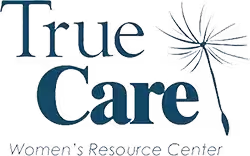Abortion has been legal in the United States for 44 years, with the Supreme Court decision of Roe vs. Wade in January 1973. There are generations of Americans who have never known a world without legalized abortion. The Guttmacher Institute, a research and policy organization, cites there were approximately one million abortions performed annually in the United States, but since not all states mandate abortion reporting, including California, there actually may be many more abortions done in the U.S.
A pregnant woman has two choices regarding her pregnancy: to carry to term or to abort. If she decides to carry to term, then she has another decision: to parent or to make an adoption plan. If she chooses to abort, she will have a procedure based on how far along she is. Therefore, she should seek factual information on the types of abortion procedures to insure she is well informed before making her decision. She can find out how far along she is by having an ultrasound. Her scan may be performed at the abortion clinic and will cost money, or she can visit her local pregnancy resource center which often performs complementary ultrasound scans. True Care Women’s Resource Center provides ultrasounds, pregnancy testing, and information on all pregnancy options, all free of charge to patients. True Care doesn’t profit from a woman’s decision whatever decision that may be regarding the outcome of her pregnancy.
Here are some other things you should know before having an abortion:
- Do I have an STD (Sexually Transmitted Disease)? Having an STD like chlamydia or gonorrhea can have negative consequences on your future fertility if the disease is not treated before getting an abortion (or giving birth). True Care provides the STD testing by medical personnel, again at no charge to the patient.
- Am I really pregnant? Although home pregnancy tests can be very accurate, sometimes they are inconclusive or misread. Perhaps you’re really early in your pregnancy and so the test reading may be inaccurate. True Care’s nurses provide both a high quality, early pregnancy test and a verification of pregnancy.
- Do I have a viable pregnancy? A positive pregnancy test doesn’t necessarily mean a woman’s pregnancy is viable or will continue. As much as 25 percent of pregnancies end on their own before seven weeks due to miscarriage. True Care’s medical staff offer free ultrasounds to women with positive pregnancy tests. Our nurses have even seen ectopic pregnancies, which can be life-threatening; these are rare and may be unknown to a woman without an ultrasound.
- How Far Along am I? Sometimes a woman isn’t certain how far along she is. Maybe she can’t remember when she had her last period or she has irregular menstrual cycles. Finding out how far along you are can help you decide what abortion procedure you will need to have should you choose to terminate your pregnancy. It may also help you know who the father is and when your due date is. True Care offers an ultrasound to help determine pregnancy dating.
- What are my options? At True Care, we provide information on all pregnancy options, including abortion. The brochures we give patients are relevant, accurate, and educational and will help you make an informed decision.
- What are the potential side effects from abortion? Abortion is a medical and sometimes surgical procedure that can have physical side effects, including excess bleeding and infection. You may experience some or all of these common effects after an abortion: pain and/or cramping, bleeding with some small clots, and nausea and/or vomiting.
Having these questions answered before obtaining an abortion will help you make a more informed decision should you be considering pregnancy termination as an option.
What if I’ve already had an abortion?
Be sure to take good care of yourself, including rest, and be watchful for any complications. If you experience anything on the list below, contact your doctor right away:
- Severe abdominal or back pain that prevents you from standing up
- Heavy bleeding more than your menstrual period with clots larger than a grape
- Fever greater than 100.4 degrees
- Continuing symptoms of pregnancy.
According to the American Pregnancy Association, there can be some potentially serious complications from abortion. These are rare, but the later the abortion the higher the risk, as high as 1 out of 50 for late-term abortions.
- Heavy or persistent bleeding
- Infection or sepsis
- Damage to the cervix
- Scaring of the uterine lining
- Perforation of the uterus
- Damage to other organs
- Death.
Additionally, some women experience psychological/emotional effects such as depression, anxiety, suicide, anger, alcohol and drug abuse, and eating disorders. These may not materialize for several years after the abortion procedure.
No matter what decision you make regarding your pregnancy, or even if you are unsure what you want to do, you owe it to yourself to have accurate information so that you can make an informed decision. True Care can provide answers to your questions and relevant information about pregnancy choices. To set up a free, confidential appointment, call or text 307-215-9684.
